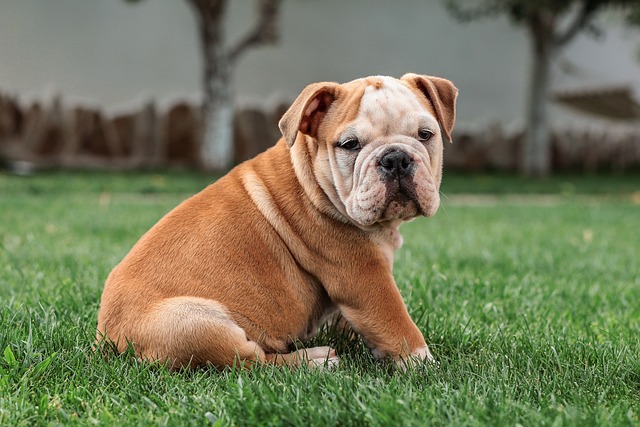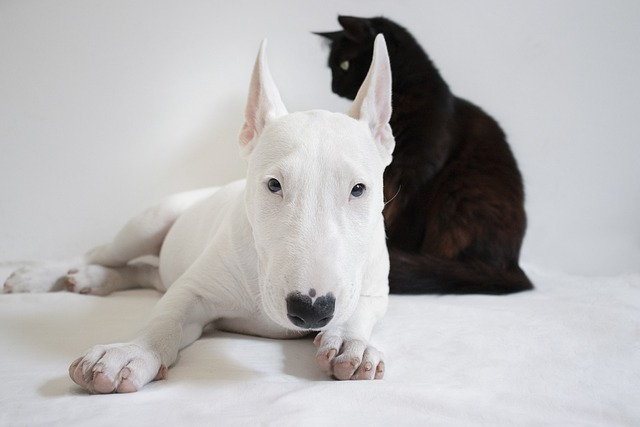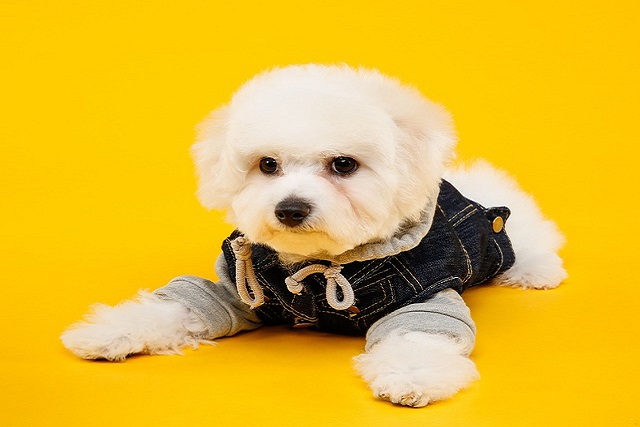
How to train your puppy to like grooming?
Grooming your puppy should be a bonding experience, not a wrestling match. But those tiny paws batting at the brush and squirms during nail trims can make it seem impossible.
The once gentle and lovely dog at home suddenly bared its teeth and opened its mouth to bite someone in an instant. This sudden change not only physically and mentally hurts the victim but also plunges the dog owner into deep self-blame and confusion. The biting behavior is like a haze hanging over the relationship between humans and pets. It not only threatens the safety of others but also disrupts the originally harmonious atmosphere of getting along. Having an in-depth understanding of the reasons why dogs bite and adopting scientific and effective methods to correct this behavior have become a compulsory course for every dog lover. This is not only related to the future of the dog but also demonstrates our respect for life and our sense of responsibility.
Dogs don't bite without reason. In many cases, it is out of fear and self-defense. When a dog is in an unfamiliar environment, facing strangers or strange animals, the inner unease will drive them to adopt a defensive posture. For example, when a young child suddenly rushes over to hug the dog, or a stranger rashly reaches out to touch it, these actions may make the dog feel threatened. In order to protect itself, the dog will choose to bite. In addition, when a dog is sick or injured, the physical discomfort will make it particularly sensitive. Even the well-intentioned touch of the owner may trigger an aggressive behavior. When we notice the abnormal reaction of the dog, we should take it to the pet hospital for a check-up in a timely manner to ensure its physical health.
Possessiveness and territorial awareness are also common reasons for dogs to bite. Food, toys, and the place where they sleep all belong to the dog's "territory". When they think these items or spaces are threatened, they will bite to defend their "sovereignty". Some dogs will growl or even launch an attack once someone approaches while they are eating. Similarly, when a dog guards its favorite toy, it will also show aggression towards those who try to snatch it.
In addition, a dog may bite because of a lack of proper social training. The puppy stage is the golden period for a dog's socialization. If it doesn't have sufficient contact with humans and other animals during this period, it won't be able to learn the correct way to socialize. When interacting with people, it may wrongly use the biting behavior because it doesn't know how to express itself.

To correct a dog's biting behavior, first of all, we need to create a safe and comfortable environment. Try to avoid putting the dog in situations that may trigger fear and unease, and give it enough personal space. When the dog feels threatened, don't force it to face the situation but give it time and space to calm down. At the same time, in daily life, let the dog feel the owner's love through gentle strokes, kind words, and delicious snacks, and establish trust in the owner.
Positive reinforcement training is an effective method to correct a dog's biting behavior. When the dog shows friendly behavior and doesn't bite, give praise and rewards in a timely manner, such as snacks, toys, or strokes, so that the dog understands that this behavior will receive positive feedback. On the contrary, when the dog shows a tendency to bite, don't scold or beat it, because scolding and beating will only make the dog more fearful and confused, and may even exacerbate the biting behavior. You can make a serious sound, such as "No", to divert the dog's attention and make it stop biting.
For the biting behavior caused by possessiveness and territorial awareness, we can correct it through desensitization training. When the dog is eating, gradually approach it while giving it more delicious food, so that the dog understands that approaching doesn't mean snatching. After multiple trainings, the dog will gradually let down its guard and change its biting behavior. Similarly, when the dog is guarding a toy, you can use other more interesting toys to attract its attention and guide it to give up the original toy, thus weakening its possessiveness.
If the dog's biting behavior is relatively serious and cannot be effectively corrected through our own efforts, we should seek the help of professional pet behavior experts in a timely manner. They will formulate a personalized training plan according to the specific situation of the dog to help the dog overcome the problem of biting.
Every dog is a unique individual, and correcting the biting behavior requires us to devote enough patience and time. During this process, we may encounter setbacks, but as long as we persevere and guide the dog with love and scientific methods, we will definitely be able to help them get rid of the bad habit of biting.
Dogs are the most loyal companions in our lives. They accompany us through countless wonderful moments with unconditional love. When a dog shows a biting behavior, we can't simply abandon it. Instead, we should have an in-depth understanding of the reasons behind it and take practical actions to help it correct the mistake. Let us use patience and love to dispel the haze hanging over the relationship between humans and pets, rebuild a harmonious atmosphere of getting along, let the dog thrive in love and care, and continue to write a beautiful chapter in the relationship between humans and pets.

Grooming your puppy should be a bonding experience, not a wrestling match. But those tiny paws batting at the brush and squirms during nail trims can make it seem impossible.

Bringing a new puppy home is a whirlwind of joy, but those unexpected puddles on the rug can quickly turn excitement into frustration.

Discover why calming sounds, not harsh noises, are the key to reducing dog barking—backed by science and real stories of stress-free pups.

Watching your dogs snarl and snap at each other isn’t just stressful—it can quickly turn dangerous. Aggression between dogs under the same roof can stem from territory disputes, resource guarding, or even underlying anxiety.

That heart-jolting moment: the doorbell rings, and your dog transforms into a fur-covered alarm system. Whether you’re in a Brooklyn walk-up or a suburban split-level

You’re in the middle of an important video call, and your dog won’t stop barking. Or maybe it’s late at night, and your neighbor’s dog’s incessant barking is keeping you up.